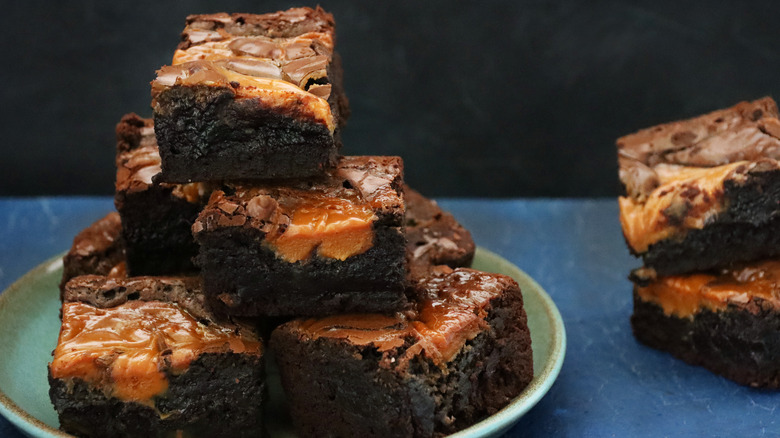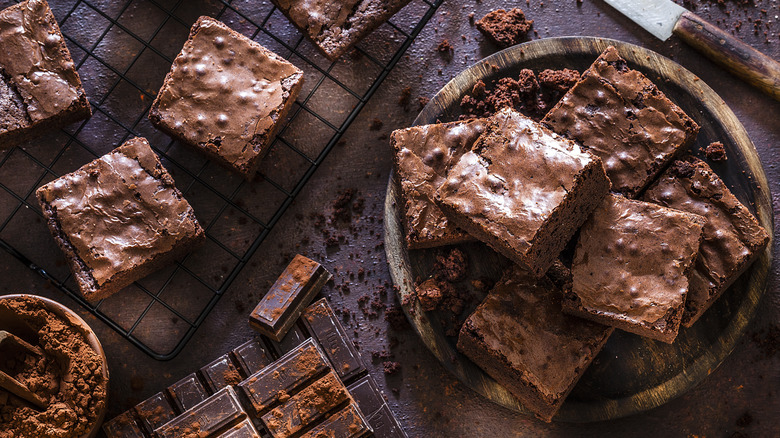How The Number Of Eggs Affects Your Brownies' Structure And Mouthfeel
Close your eyes and imagine that you are biting into the perfect brownie. What does it feel like? Does it feel like a piece of cake? Is it moist and dense and fudgy? Or does it have a chewy texture? All three are valid. And everyone has their ideal. If you prefer fudgy over cakey, that's fine. It's also okay if you'd rather have a chewy brownie. No matter which type of brownie you like, however, you want to be able to bake that specific type without fail. And there is one ingredient that is largely responsible for a brownie's structure: the eggs.
Eggs are a seemingly magical ingredient in baking. They add stability and structure to your recipe. They can act like glue, add moisture, or they can increase the amount of air bubbles trapped inside your batter to affect the texture. Consequently, changing how many eggs you add to your brownie batter, as well as what part of the egg you add, can create the type of brownie that you crave.
Using eggs to get the type of brownie you desire
A classic brownie recipe is going to give you a somewhat fudgy brownie. That is your baseline. While you can use fewer eggs, this will make your brownies thinner and you will need to add more moisture, such as milk or applesauce, to get desirable results.
If you opt to add more eggs, say double the amount, something interesting happens. Even though you are adding more moisture, the air bubbles that you catch in the extra eggs add volume, which decreases the density of your final product. This makes your brownies rise and gives them a much more cake-like texture.
If you want a chewy brownie, the kind that has a little more gummy pull to it when you bite down, then you need to add only the yolks. A good place to start, again, is by doubling. If your recipe calls for two whole eggs, use two whole eggs and two egg yolks. The result is a brownie that not only has a more decadent element, but has a markedly chewier texture as well.

